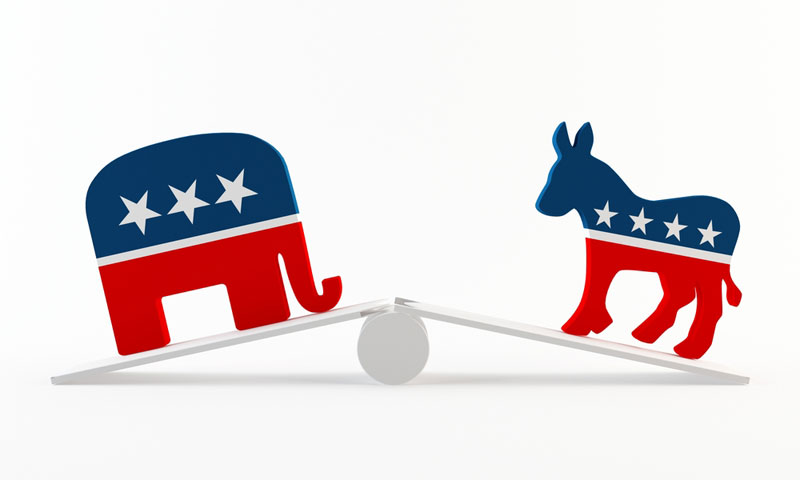Do Political Ideologies Affect How Long You Live?

People whose political ideas are on the liberal end of the spectrum may be less likely to die early than those whose ideas are conservative or moderate, a new study suggests.
However, people's risk of dying early does not always match with their stated political party — there was no difference in the risk of death between Democrats and Republicans during the study period, the researchers found.
In the study, researchers analyzed information from nearly 33,000 people in the U.S. who completed a survey about their political beliefs. The researchers also used information from the National Death Index to determine whether participants died between 1976 and 2008.
People who identified as holding conservative or moderate ideologies were 6 percent more likely to die during the study period, compared with people who identified with liberal ideologies. The findings held after researchers took into account factors that might affect people's risk of dying over a given time, including their household income, race, gender and residential area.
Related:
- Election Day 2016: A Guide to When, What, Why and How
- Democratic Party Platform 2016: We Fact-Checked the Science
- Republican Party Platform 2016: We Fact-Checked the Science
When the researchers looked at people's political parties, they found that Democrats and Republicans did not differ in terms of their risk of dying during the study period. However, independents were less likely to die during the study period than Democrats. (The researchers did not directly compare independents with Republicans.) [Life's Extremes: Democrat vs. Republican]
"Our study suggests that political party affiliation and ideology is related to time to death," said the researchers, from the University of Nevada's School of Community Health Sciences. However, people's political party and their political ideology appear to be different predictors of risk of early death, they said.
Get the world’s most fascinating discoveries delivered straight to your inbox.
The study's findings disagree with a number of previous studies, which have tended to find that conservatives and Republicans report better health than liberals and Democrats. Conservatives are more likely to report being happy and religious, and both of these factors have been linked with better health, the researchers noted in their study. In fact, the researchers of the new study even hypothesized at the outset that conservatives and Republicans would be less likely to die earlier than liberals and Democrats.
The new findings might differ from previous findings because a person's risk of dying is an objective measure of their health, whereas a person's perception of their health is more subjective, the researchers said. For example, "liberals may be more or less likely to perceive themselves as sick than conservatives, when in fact their objective measures of health are identical," the researchers wrote.
In addition, it's possible that people who fall ill might change their political views on issues such as universal health care, the researchers said.
Still, the researchers said they cannot rule out the possibility that other factors not taken into account by the study may affect what seems like a link between political beliefs and time to death. In addition, the study assessed the participants' political party and beliefs at a single point in time, but it is possible these factors might change over time.
S.V. Subramanian, a professor of population health and geography at Harvard University, who was not involved in the new study but who has studied the relationship between political party and health, said it may be difficult to tease out political ideology from political party affiliation, and it would have been helpful for the new study to show how much the two overlap.
In addition, it's unlikely that people's political ideology or party affiliation affect their risk of death directly, Subramanian said. Instead, these factors are "more likely to be a reflection of a particular set of values and beliefs," which, in turn, could affect health.
Subramanian also noted that the relationship between political ideology and risk of death in the study is "rather weak."
The researchers said that more studies are required to determine the potential role of attitudes, beliefs and behaviors in the link between political ideology and party affiliation and the risk of early death.
The study is published online today (Jan. 28) in the Journal of Epidemiology & Community Health.
Follow Rachael Rettner @RachaelRettner. Follow Live Science @livescience, Facebook & Google+. Original article on Live Science.

Rachael is a Live Science contributor, and was a former channel editor and senior writer for Live Science between 2010 and 2022. She has a master's degree in journalism from New York University's Science, Health and Environmental Reporting Program. She also holds a B.S. in molecular biology and an M.S. in biology from the University of California, San Diego. Her work has appeared in Scienceline, The Washington Post and Scientific American.
 Live Science Plus
Live Science Plus





